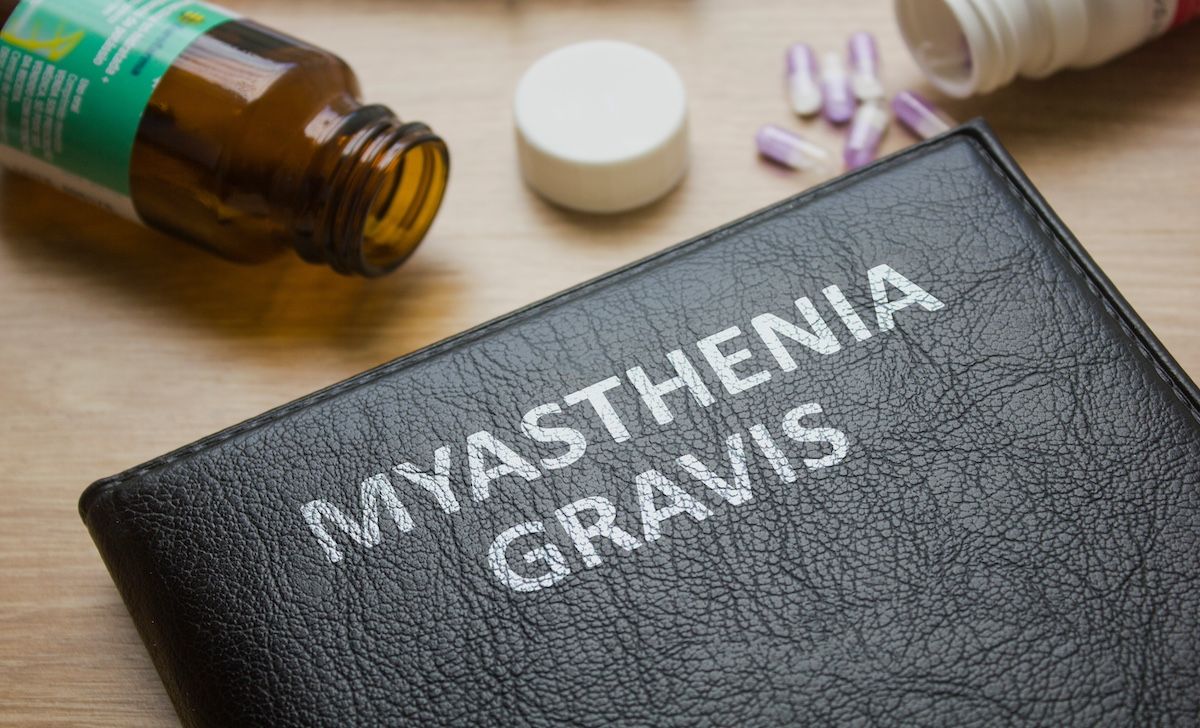- Center on Health Equity & Access
- Clinical
- Health Care Cost
- Health Care Delivery
- Insurance
- Policy
- Technology
- Value-Based Care
Analysis Offers Insight Into Most Effective Treatment for MG
Across treatments, rozanolixizumab and batoclimab were most effective, though rozanolixizumab carried increased risk of adverse events (AEs) and serious AEs.
Data from a new analysis of a range of treatments used for myasthenia gravis (MG) are providing insight into the most effective options for the disease, according to the researchers of the analysis.1
The network meta-analysis included data from 1657 patients from 21 studies of 13 drugs. Overall, all drugs—either a monoclonal antibody or immunosuppressant—performed better than placebo. While offering guidance for treatment selection, the findings should be interpreted with caution, as trials included in the analysis lacked direct comparisons and had other limitations, explained the researchers. Their findings were published in Journal of Translational Medicine.
When MG Activities of Daily Living (MG-ADL) score was considered the most important factor, rozanolixizumab ranked as the top treatment. | Image Credit: © mdaros - stock.adobe.com

Across treatments, rozanolixizumab and batoclimab were most effective, though rozanolixizumab carried increased risk of adverse events (AEs) and serious AEs.
Rozanolixizumab (Rystiggo; UCB)—approved in 2023 for the treatment of anti–acetylcholine receptor and anti–muscle-specific kinase antibody-positive generalized MG2—showed the largest improvements in MG symptoms.1 When MG Activities of Daily Living (MG-ADL) score was considered the most important factor, rozanolixizumab ranked as the top treatment, with the monoclonal antibody demonstrating a score of 85%. MG-ADL was used in most studies included in the analysis, with the measure included as a primary outcome in multiple studies.
“Recent clinical trials indicate that rozanolixizumab has therapeutic benefits that are not inferior to those of plasma exchange and intravenous immunoglobulin and that its administration through subcutaneous injection facilitates its dissemination,” wrote the researchers. “However, its safety and efficacy require further evaluation after its market launch. If the effectiveness of rozanolixizumab is validated in the real world, it may become the preferred medication for the treatment of MG in the future.”
The improvements of rozanolixizumab were accompanied by increased safety signals, with rozanolixizumab being the only studied treatment that increased the risk of AEs compared with placebo, though data have shown that AEs associated with the treatment are mild to moderate in severity.
Following rozanolixizumab, ailucoplan and batoclimab were top ranked when MG-ADL was the primary evaluation criteria. Out of all treatments, batoclimab indicated best efficacy, showing most improvement in Quantitative MG and MG Composite scores, with surface under the cumulative ranking curve (SUCRA) values of 99% and 92%, respectively. SUCRA scores were used in the analysis in order to determine the potential efficacy and likelihood of AEs with each treatment; higher SUCRA values indicate better efficacy or lower risk of AEs.
Batoclimab, zilucoplan, and eculizumab outperformed placebo in all 4 efficacy scores. Eculizumab had a SUCRA value of 96%, performing better than the other treatments in terms of score improvements on 15-item revised version of the MG Quality of Life score. Data also showed that belimumab had the lowest likelihood of AEs, with a SUCRA value of 85%.
Similar to previous research, the current analysis found that while belimumab showed the lowest chance of AEs, the monoclonal antibody failed to show significant improvements over placebo in Quantitative MG scores.3
There were 3 immunosuppressants included in the analysis, of which methotrexate ranked highest for MG-ADL and Quantitative MG, outperforming mycophenolate mofetil and tacrolimus.1 Methotrexate is typically used in patients not sensitive enough to other treatments or those who develop an AE.
“The present study indicates that methotrexate has better efficacy than that of other immunosuppressants; however, its effectiveness is moderate compared with that of some monoclonal antibodies,” explained the researchers. “A systematic review of the use of methotrexate for generalized MG showed that it is a potentially safe and effective alternative to azathioprine as a steroid-sparing agent, especially in developing countries where the high cost of azathioprine limits compliance. This finding supports those of the present study.”
References
- Gu J, Qiao Y, Huang R, Cong S. Efficacy and safety of immunosuppressants and monoclonal antibodies in adults with myasthenia gravis: a systematic review and network meta-analysis. J Transl Med. Published online October 21, 2024. oi:10.1186/s12967-024-05751-1
- UCB announces U.S. FDA approval of RYSTIGGO (rozanolixizumab-noli) for the treatment of adults with generalized myasthenia gravis. UCB. June 27, 2023. Accessed November 20, 2024. https://www.ucb.com/stories-media/Press-Releases/article/UCB-announces-US-FDA-approval-of-RYSTIGGOR-rozanolixizumab-noli-for-the-treatment-of-adults-with-generalized-myasthenia-gravis
- Hewett K, Sanders DB, Grove RA, et al. Randomized study of adjunctive belimumab in participants with generalized myasthenia gravis. Neurology. 2018;90(16):e1425-e1434. doi:10.1212/WNL.0000000000005323
